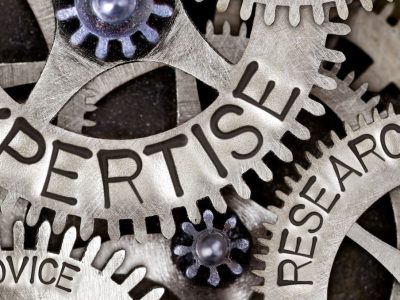
Sir Robert Akenhead: I’ve come across every type of expert, good, bad, indifferent. If occasionally during this talk there are more memories of the bad ones, that is only because the experiences were more amusing with hindsight. And there is only so much praise that you can make of a good expert.
In the UK, there is a rule of court called CPR Part 35. It highlights the overriding duty owed by any expert, which is to the court. It specifically states: “Expert evidence should be the independent product of the expert uninfluenced by the pressures of litigation. Experts should assist the court by providing objective, unbiased opinions on matters within their expertise. The expert should not assume the role of an advocate.” There are different practices in the different fields of law which the specialist Bars in this country have regard to. There are protocols and guides applicable in medical or clinical negligence, different provisions in family court proceedings, different from those in the technology and construction field, in which I specialise.
It’s clear that the courts, particularly over the last five to ten years, are taking an increasingly robust line, mostly pre-trial, in relation to the admissibility and other aspects of expert evidence. There’s been a fairly recent case in the Technology and Construction Court – Dana UK Axle v Freudenberg – which actually excluded expert evidence at the trial, when it emerged that there was extensive non-compliance with the relevant guide. Mrs Justice Joanna Smith said: “The establishment of a level playing field in cases involving experts requires careful oversight and control on the part of the lawyers instructing those experts, all the more so in cases involving experts from other jurisdictions, who may not be familiar with the rules that apply in this jurisdiction. For reasons which have not been explained, there has been no such oversight or control over the experts in this case.” That was on one side. “So, the provision of expert evidence,” she said, “is a matter of permission from the court, not an absolute right, and such permission presupposes compliance, in all material respects, with the rules. I agree with counsel’s submission that the use of experts only works when everyone plays by the same rules. If the rules are flouted, the level playing field abandoned, and the need for transparency ignored, as has occurred in this case, then the fair administration of justice is put directly at risk.”
Obviously, experts need relevant expertise in their chosen fields – that, you might have thought, was a given. The relevant expertise does not necessarily involve degrees or doctorates or even memberships of relevant institutions. In my early days at the Bar, I was acting for a large firm of London City solicitors who’d employed some contractors to put in a mechanical electrical air conditioning in their big City offices, and things had gone wrong, and they employed an expert who was phenomenally helpful to me as we prepared the case. He produced a draft report which looked very good, but it contained a list of qualifications at the end, some of which I just simply didn’t recognise. I then asked him what they were, and it emerged that every single one of about 15 qualifications were ones you buy. Everything he was saying was perfectly sensible. I said: “What actually is your expertise?” And he said: “Well, all I’ve got is 40 years in the mechanical and electrical contracting business.” “Well, we’ll put that in, that is your expertise.” Because the report was good, it went in, and the opposition collapsed, and the case settled.
It’s clear that the courts, particularly over the last five to ten years, are taking an increasingly robust line, mostly pre-trial, in relation to the admissibility and other aspects of expert evidence.
So apart from expertise, a key factor is independence and impartiality. There’s nothing worse than the expert who starts being an advocate for his or her client and is in effect a ‘gun for hire’. The expert world is big business now, with large international firms competing for the work. Back in the day, a lot of experts, including medical experts, often came to it towards the end of their career almost as a part-time, pre- or post-retirement job. Lots of experience, but there are problems with that in that you can, as an expert, get out of date. But these large conglomerate firms can give rise to other problems, not least of which is conflict. Of course, there’s a dichotomy, isn’t there? Is an expert required to be independent partly because they’re paid – employed by one side or the other. And the expert owes the contractual duty to the clients to exercise reasonable care and skill. So, it’s a difficult one. And there will be conflicts from time to time, but decent experts should be prepared early in the case to start indicating if they have very real doubts about their client’s case in the area which he or she has been asked to talk about.
So, experts need to have the right qualifications. You would have thought that might be obvious. Medical, accounting, engineer, architect, other types of experts giving evidence about professional negligence, are often asked whether they have practical experience in whatever field they’re giving evidence about. Sometimes experts are overqualified. And some experts are Jacks-of-all-trades, so they’ve got lots of qualifications, and one or more of them might be relevant to the matter at issue, but they’ve never really done much on any aspect of their qualifications. When I was a judge, I considered it useful in my judgments to summarise my views about the experts in different disciplines. This was to explain to the parties who read the judgement why I preferred the evidence of one expert over another, rather than just a blanket conclusion that I preferred Dr X over Professor Y. A number of judges do that, and I think it’s a fair thing to do for the parties.
Inevitably, lawyers, solicitors and barristers will be involved in the selection of experts. Nothing wrong with that as such, and potential experts will be asked questions identifying what their broad approach on the issues in a given case is. And it’s unsurprising because it’s a rare case in which a party introduces an expert whose evidence is against his or her own client. Once selected, the experts will often play a material part in the pleading of a material case, or defence, or the production of memorials in arbitration. But there is a dividing line between what the solicitors and barristers should be allowed to do, and shouldn’t simply tell the expert, “This is what you must put in your expert report.” Of course, it’s all privileged, it’s all behind closed doors, and it’s almost impossible, but very occasionally it comes out where an expert has been heard to say, “That’s what I was told to say.” It undermines the credibility of the party. There is a dividing line, which sometimes gets obscured.
Inevitably, lawyers, solicitors and barristers will be involved in the selection of experts. Nothing wrong with that as such, and potential experts will be asked questions identifying what their broad approach on the issues in a given case is. And it’s unsurprising because it’s a rare case in which a party introduces an expert whose evidence is against his or her own client.
We come now to technology, not just because I was in the Technology and Construction Court. As many of you will know, you get a lot of technology coming into the giving of expert evidence. It’s easy to have computer runs that tell you all the answers. “The computer says no”, and maybe the case goes your way. “Computer says yes”, it may not. Object lesson is where your expert, or you as expert, rely upon computer workings, make sure that you’re not open to that sort of attack. Because there, in court or an arbitration, you’re not going to be able to get your computer out, put the correct input in, run the computer and say: “Oh, there you go, it still shows something, not as bad as I thought, but…” You’re not going to be able to do that. It’s going to be too late in almost every case. Also, judges have got to be careful about running software themselves. When I was head of the Technology and Construction Court I was not as good as my ten-year-old granddaughter is now. And the problem is transparency, because if you do – I can use some of these systems that I come across – you never quite know the input that there has been which you haven’t checked. And there are often thousands of pieces of input.
I’m now going to draw matters to a conclusion. So, experts and practices that engage experts can be a minefield. Experts proving not to be properly qualified, experts acting as advocates. Once they’re on the witness stand, there’s not very much you can do if they’re going AWOL and away from the prepared speech. There’s not much you can do as counsel. And if you jump in and say, “I must ask you to stop”, that’s not really going to help if it’s your own witness. In fact, you won’t really be allowed to do it. So, you have experts under the thumbs of their legal and client teams, experts changing their mind, experts occasionally not doing a good, professional, and independent job. Truth is, of course, that probably the large majority of experts are decent people with the right qualifications, who behave independently and impartially. Judges have to decide who’s right and who’s wrong.
For the full video recording: innertemple.org.uk/loveorloathe
Sir Robert Akenhead
Retired High Court Judge
Master of the Bench
